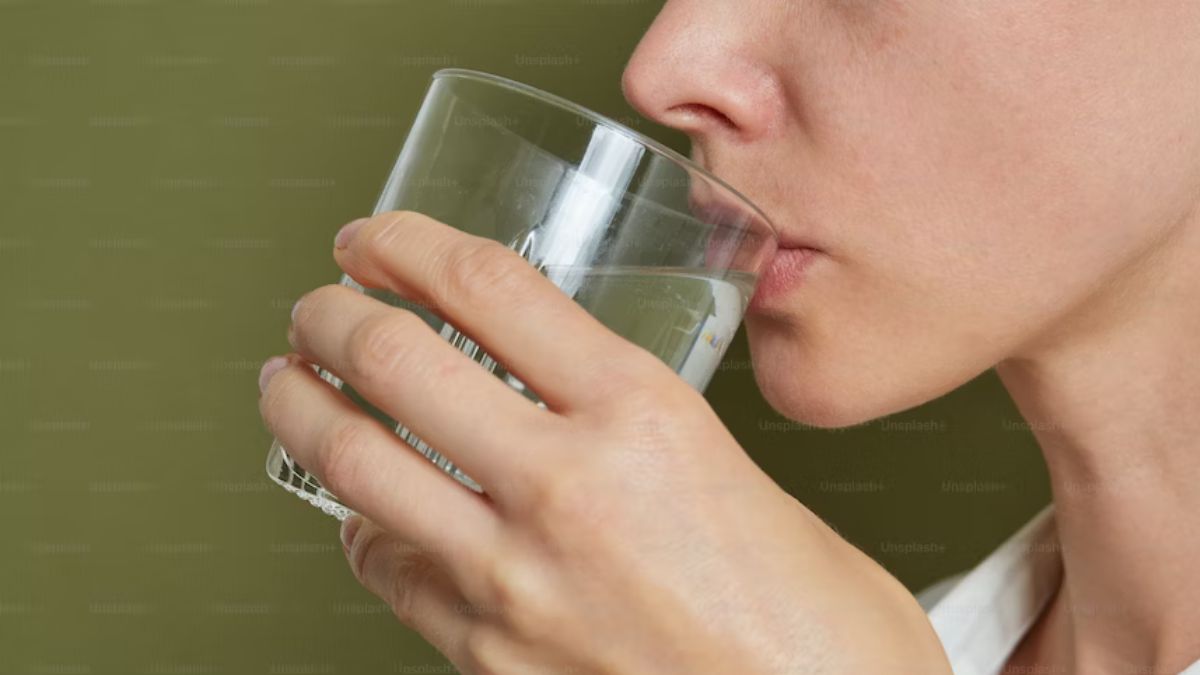If you want to feel and look your best, drinking enough water every day is a must. Maintaining an adequate water intake is critical for the health of your organs, tissues, and cells. While factors like size, exercise, and climate might affect water requirements, it’s still helpful to have a basic idea of How many bottles of water should i drink a day. In this piece, we’ll discuss how much water you should be drinking each day, along with some helpful pointers for doing so.
A large portion of our body weight can be attributed to the water we carry around with us. It helps with temperature control, nutrient delivery, waste removal, and joint lubrication, among many other functions. Dehydration, caused by drinking too little water, can have harmful effects on our health and well-being.We will discuss on, How many bottles of water should i drink a day ?
Importance of Hydration
There are numerous advantages to maintaining a healthy water intake. Adequate water intake is important for healthy functioning since it helps maintain the balance of physiological fluids. It benefits our internal organs, skin, and joints in addition to aiding with digestion, nutrient absorption, and circulation. In addition, maintaining an adequate water intake helps keep the mind sharp, the body energized, and the core temperature stable.
Factors Affecting Water Requirements
Several factors influence how much water an individual requires. Keeping these things in mind might help you determine how much water you need to drink each day.
Body weight and size
Body weight is a major factor in determining daily water needs. More water is required to maintain appropriate hydration for larger and heavier individuals. Thirty to thirty-five milliliters of water per kilogram of body weight is a common recommendation. If you weigh 70 kilos, you should try to consume between 2,100 and 2,450 milliliters of water daily.
Physical activity levels
Physical activity, and especially exercise that results in perspiring, causes the body to lose more water. Replacing fluids lost through sweating is essential for staying hydrated. It is recommended that more water be consumed to make up for fluid loss during exercise or other vigorous activity. For every 30 minutes you exercise, the American Council on Exercise recommends you consume an additional 350–500 milliliters of water (about 12–17 ounces).
Climate and environment
Sweating causes some people to lose more water than usual in hot and humid environments. It’s important to drink more water in these situations because you’ll be sweating more. Similarly, those who live at high elevations may lose more water than usual through increased respiration rates, so they should take care to be adequately hydrated.
General Guidelines for Daily Water Intake
While everyone has slightly different water requirements, you can use these as a starting point for making your own daily plan.
Recommended daily intake
How many bottles of water should i drink a day. The average adult should drink about 2 liters of water (equivalent to 8 cups) every day. This advice is meant as a starting point, though, and might not work for everyone. When tailoring your water intake to your specific needs, it is important to think about things like your weight, how active you are, and the weather.
Hydration needs during exercise
Hydration before, during, and after exercise is essential for optimal performance and to avoid dehydration. How many bottles of water should i drink a day. The American College of Sports Medicine suggests consuming 400–800 milliliters (14–27 ounces) of water 2-3 hours prior to physical activity. Depending on the intensity and duration of your workout, you should aim to drink 150-350 milliliters (about 5-12 ounces) of water every 15-20 minutes. Rehydrate with 450-675 milliliters (15-23 ounces) of water for every pound of perspiration lost after exercise.
Tailoring Water Intake to Individual Needs
Although you can use the recommendations as a jumping off point, you should tailor your water consumption to your specific requirements.
Calculating water intake based on body weight
Taking your weight into account can help you get a more precise reading on your daily water needs. You should drink 30–35 milliliters per kilogram of body weight, for example. This method of calculation will provide you with a specific recommendation for water consumption each day. Keep in mind that this is only a ballpark figure, and that you’ll need to make adjustments for things like your level of physical activity and the weather.
Adjusting water intake for physical activity
Water consumption should be increased during moderate to intensive physical exercise. Aim for an extra 350-500 milliliters of water intake for every 30 minutes of exercise, as was indicated earlier. You should stay hydrated by drinking water before, during, and after your workout.
Considering climate and environmental factors
others who reside in hot and humid climates or at a high altitude may require more water than others who do not. Keep these things in mind and drink enough water to replace the fluids you’ll lose through sweat and increased breathing.
Signs of Dehydration
How many bottles of water should i drink a day. Knowing the warning signs of dehydration is essential for staying hydrated. Keeping an eye out for these symptoms can allow you to react quickly and rehydrate if needed.
Thirst
When you’re parched, your body wants you to know it needs fluids. However, our bodies don’t always appropriately express our hydration demands through thirst alone. If you want to avoid thirst as a sign of dehydration, drinking water frequently throughout the day is your best bet.
Dark urine
The color of your urine can be used as a reliable indicator of how well hydrated you are. When you’re dehydrated, your urine will have a dark yellow or amber color, whereas when you’re well hydrated, it will be a pale yellow or clear.
Fatigue and dizziness
Fatigue, lightheadedness, and brain fog are all symptoms of dehydration. These signs may indicate that you need to up your water intake.

Benefits of Staying Hydrated
Keeping yourself adequately hydrated has several advantages beyond just preventing thirst.
Improved cognitive function
Memory, focus, and other mental abilities can all suffer from even minor dehydration, according to research. Hydration is a key factor in maintaining healthy brain function.
Enhanced physical performance
Athletes and those who regularly engage in physical activity should drink enough water to maintain optimal performance. Reduced endurance, strength, and coordination are just some of the ways in which dehydration can impair physical performance. Maximize your physical potential and enhance your exercise performance by drinking enough water before, during, and after your workout.
Healthy skin and digestion
Water is essential for good digestion and for keeping the skin in good condition. Maintaining an adequate water intake helps the skin retain its natural moisture, which enhances its elasticity and general appearance. Constipation is avoided and regular bowel motions are supported, and nutrients are digested and absorbed more efficiently as a result.
Common Myths about Water Intake
Several widespread myths about water use exist. Let’s put some of these urban legends to rest:
“Eight cups a day” rule
It’s a common misconception that adults should replenish their water supply with eight cups (or 64 ounces) every day. As was previously established, water requirements are highly context-specific. Optimal water intake is determined by the individual’s weight, level of physical activity, and surrounding climate.
Relying solely on thirst
Dehydration can be indicated by thirst, but it may not be enough of a cue to get you to drink more water. Even if you aren’t thirsty, it’s best to make drinking water a regular part of your daily routine.
Tips for Meeting Daily Water Goals
It’s not always easy to drink the recommended amount of water every day. In order to prevent dehydration, follow these guidelines:
Carry a reusable water bottle
Carrying a refillable water bottle with you at all times will prompt you to drink more water at regular intervals. Keep it topped off and make it a point to drink from it whenever you can.
Set reminders or use hydration apps
Setting reminders on your phone or using hydration apps that deliver notifications can help if you frequently forget to drink water. Using these aids, you may get into a pattern and make sure you’re drinking enough water.
Incorporate hydrating foods and beverages
You can improve your fluid intake by eating and drinking items that are high in water content, in addition to drinking water. Watermelon, cucumbers, and oranges are among high-water-content foods that can help you feel more hydrated. Herbal teas, infused water, and low-sugar electrolyte drinks are all great ways to mix things up and stay hydrated without sacrificing taste.
Conclusion
In order to be healthy and happy, how many bottles of water should i drink a day. it’s essential to drink enough water every day. It’s vital to grasp the broad limits for daily water intake, even if the actual quantity you need may vary depending on factors including body weight, physical activity, and climate. You may stay properly hydrated by giving some thought to these recommendations and tailoring your water intake to your specific needs. Always pay attention to your body, learn to see the warning symptoms of dehydration, and actively seek out opportunities to replenish your water supply throughout the day.
FAQs
Can I drink other beverages instead of water?
While water is the best choice for staying hydrated, other beverages like herbal tea, infused water, and low-sugar electrolyte drinks can contribute to your daily fluid intake. However, it’s essential to be mindful of the sugar and caffeine content in these beverages, as excessive consumption can have adverse effects.
Is it possible to drink too much water?
While rare, drinking excessive amounts of water can lead to a condition called hyponatremia, which is characterized by low sodium levels in the blood. It’s important to balance your water intake and listen to your body’s signals of thirst and hydration.
What if I don’t feel thirsty?
Relying solely on thirst as a cue to drink water may not always be reliable, as our bodies may not accurately communicate our hydration needs. It’s best to establish a regular drinking routine and consume water throughout the day, even if you don’t feel thirsty.
Does coffee or tea count towards my daily water intake?
Coffee and tea can contribute to your overall fluid intake, but their diuretic effects may increase urine production. It’s important to balance these beverages with additional water consumption to ensure adequate hydration.
How do I know if I am drinking enough water?
Monitoring urine color, considering your body weight and activity level, and paying attention to signs of dehydration such as thirst, fatigue, and dizziness can help you determine if you’re drinking enough water. Remember to listen to your body and make adjustments as needed to maintain optimal hydration levels.











